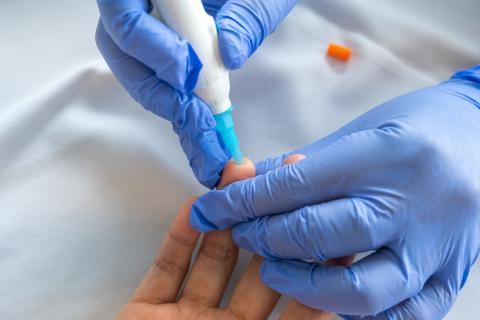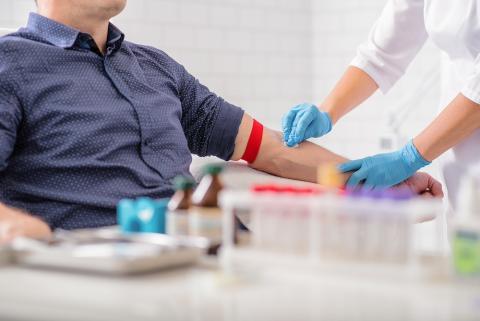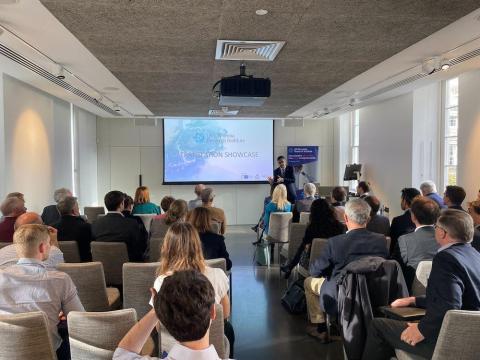
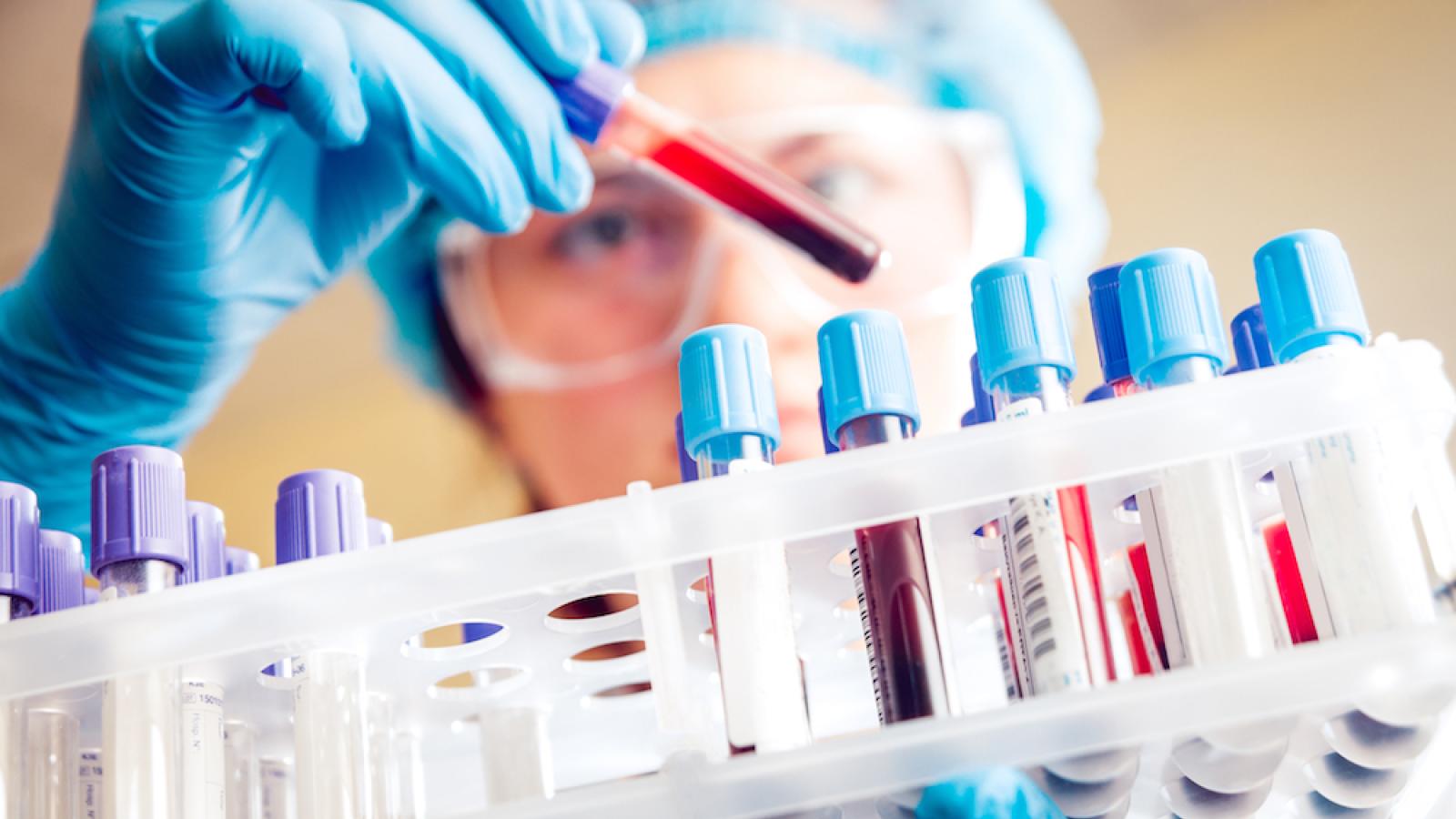
Biomarker Factory

The UK DRI Biomarker Factory is world-leading in establishing novel, highly sensitive assays that can be used for the identification of new biomarkers. This will be truly transformational for our field and our race to cures for dementia.
An overview of the research taking place at the UK DRI's Biomarker Factory. Credit: Alzheimer's Society
Targeting early diagnosis of dementia
We know that for the majority of neurodegenerative conditions, harmful changes to the brain begin decades before symptoms appear. To stand a better chance of slowing or stopping disease progression, we need to intervene with treatments at the earliest stages. However, at present, it is very difficult and costly to diagnose and differentiate these conditions.
The UK DRI Biomarker Factory aims to transform the early detection, diagnosis and monitoring of dementia, by facilitating the development of fluid biomarkers for research and the clinic. This includes biological signals found in the blood, paving the way for scalable, non-invasive diagnostic tests to detect, and differentiate, neurodegenerative diseases at their earliest stages.
What are biomarkers?
Short for ‘biological markers’, biomarkers are a measure – or a flag – of a biological state, helping us identify and monitor healthy biological processes or, crucially, harmful changes occurring in disease. Fluid biomarkers, such as molecules and proteins found in the blood or cerebrospinal fluid (CSF) which is in contact with the brain, are of high interest as they are already providing useful information about the state of the brain. Cutting-edge technology now allows for ultrasensitive detection of biomarkers even in very early stages before disease symptoms present.
Find out more about biomarkers and other ways of detecting neurodegenerative disease in the dedicated diagnostics research area.
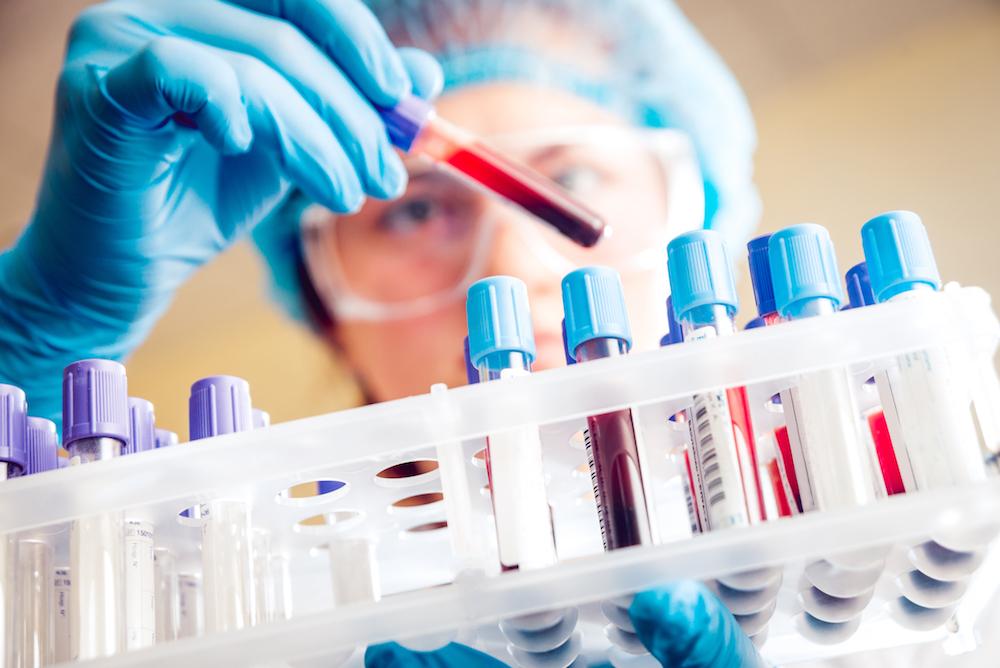
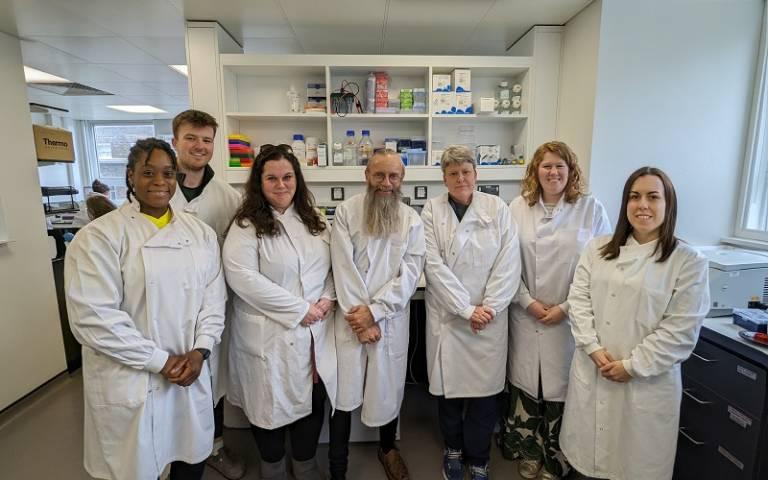
Delivering the 'gold standard' in biomarker development
The platform was set up in April 2021 at UCL under the leadership of biomarker expert Prof Henrik Zetterberg and is co-led by Dr Amanda Heslegrave. It is the most experienced academic lab in the UK using the latest Quanterix Simoa technology and the first lab in the UK to have the latest Alamar NULISA technology.
The platform offers advice and services to teams across the the world. To find out how they could help your research or clinical work, click on the 'Resources' tab.
Latest news
